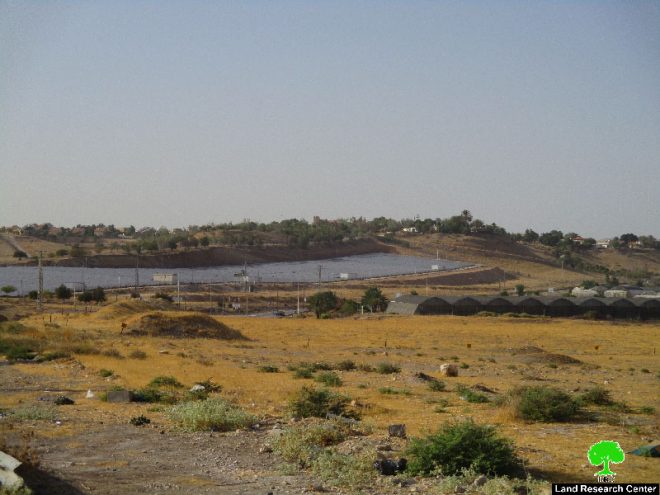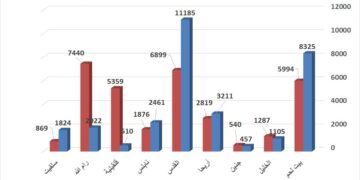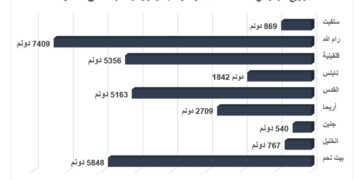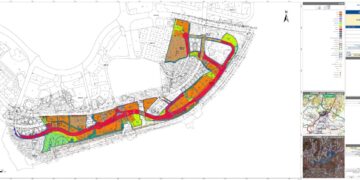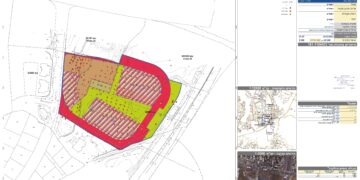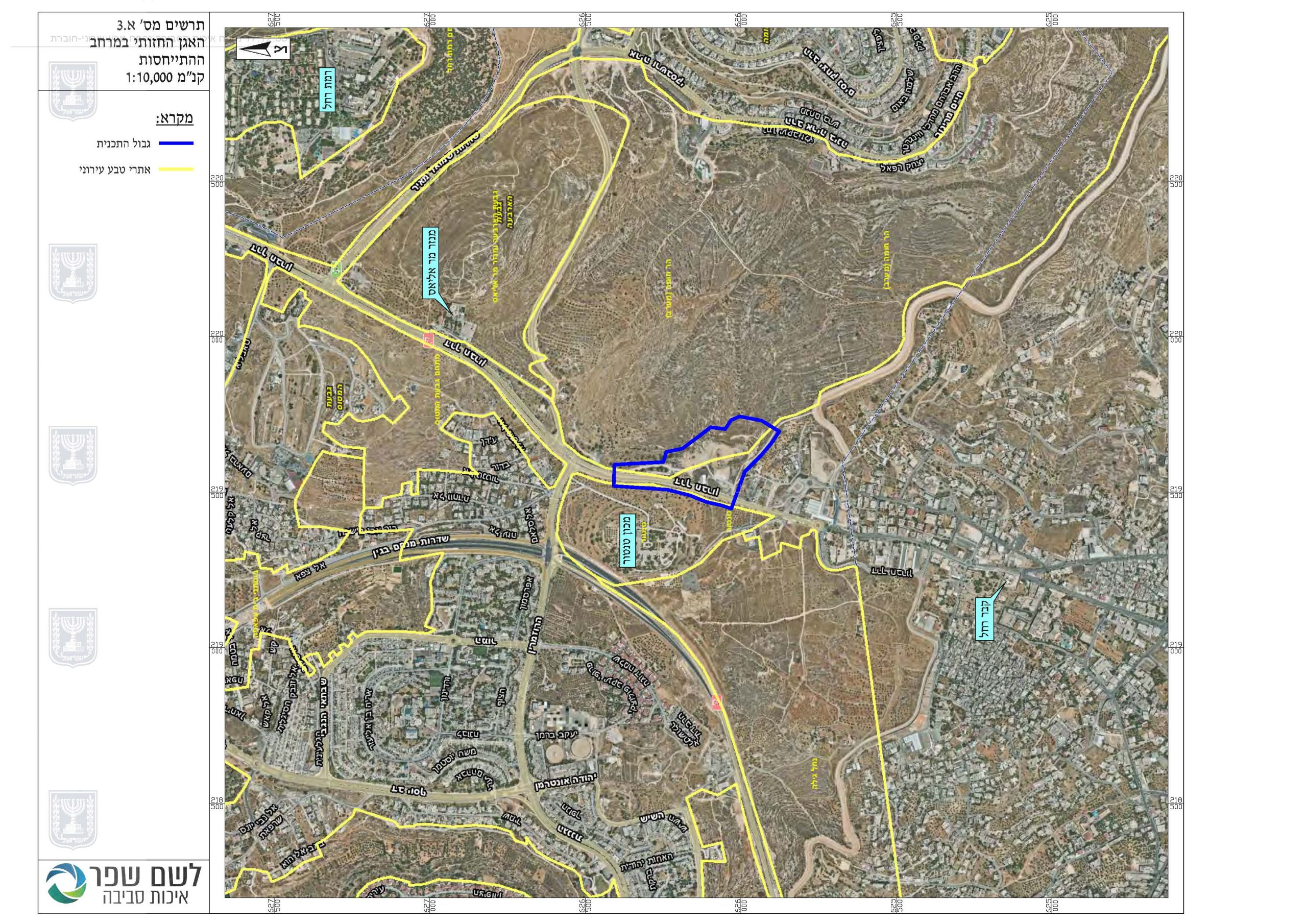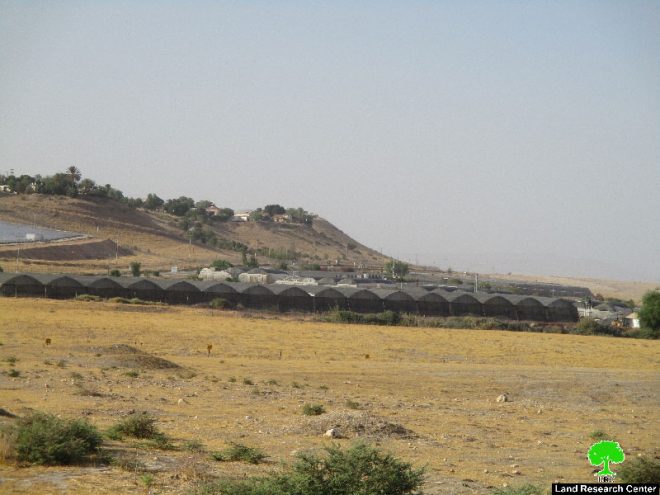- Violation: declaring a new master plan for a colony
- Location: Bardala village- Tubas
- Date: June 22, 2016
- Perpetrators: the so-called Regional Committee of Planning and Construction- Israel
- Victims: farmers of the area
Details:
Al-Quds newspaper featured on June 22, 2016 an advertisement by the so-called Regional Committee of Planning and Construction- Israel, declaring the new master plan no. 329 for Mehola colony. The plan includes the establishment of a massive water pool with a huge pump for the sake of developing the agricultural sector in the periphery of the colony though increasing the agricultural patch. Noteworthy, the expansion will be at the expense of Palestinian lands.
The advertisement featured in AL-Quds newspaper on June 22, 2016
Photos 1-4: Mehola colony
According to the data obtained by the staff of field research at Land Research Center, most of the Israeli colonies in the area of Palestinian Jordan Valley are witnessing rapid and notable expansion on lands confiscated and seized on claims of them being "State Property" or " Closed Military Zones". Such lands get given for colonies to become subject for colonial expansion and development.
It should be marked that 95% of the agricultural colonies that are founded in the area of Palestinian Jordan Valley with a total land area of 68,000 dunums sap the water resources of the area. Such colonies consume around 60,000000 m3 per annum, which negatively affect Palestinian agricultural sector and its development. Also, those colonies enjoy tax reduction and may other facilitations in terms of education, transport and housing.
About Mehola:
The colony was established in 1982 as an outpost that progressively evolved into a greater colony inhabited by more than 1500 colonists, the majority of whom are conservatives.
The colony was first used as a military zone for the Israeli occupation army by 1980. Later on, the zone gradually became a residential colony.
Land Research Center sees Israel continuous expansion on colonies in the West Bank and Jerusalem at the expense of Palestinians and lands a flagrant violation of Human Rights and all international laws and conventions, which prohibit disposition of public properties in occupied countries.
UN Resolutions
UN Security Council Resolution 242 of 1967: calls for
- the Withdrawal of Israel armed forces from territories occupied in the recent conflict;
- Termination of all claims or states of belligerency and respect for and acknowledgment of the sovereignty, territorial integrity and political independence of every State in the area and their right to live in peace within secure and recognized boundaries free from threats or acts of force." [4]
UN Security Council Resolution 449 of 1979: the Security Council determined:
- "that the policy and practices of Israel in establishing settlements in the Palestinian and other Arab territories occupied since 1967 have no legal validity and constitute a serious obstruction to achieving a comprehensive, just and lasting peace in the Middle East"
UN Security Council Resolution 452 of 1979: states that
- "the policy of Israel in establishing settlements in the occupied Arab territories has no legal validity and constitutes a violation of the Fourth Geneva Convention relative to the Protection of Civilian Persons in Time of War of 12 August 1949" and "calls upon the Government and people of Israel to cease, on an urgent basis, the establishment, construction and planning of settlements in the Arab territories occupied since 1967, including Jerusalem."
UN Security Council Resolution 465 of 1980:
- It expressed concern at Israeli settlement policy in the Arab territories and recalled resolutions 237 (1967), 252 (1968), 267 (1969), 271(1969) and 298 (1971). It further called upon the State and people of Israel to dismantle such settlements. The resolution calls on all states ‘not to provide Israel with any assistance to be used specifically in connection with settlements in the occupied territories’.
Prepared by
The Land Research Center
LRC

